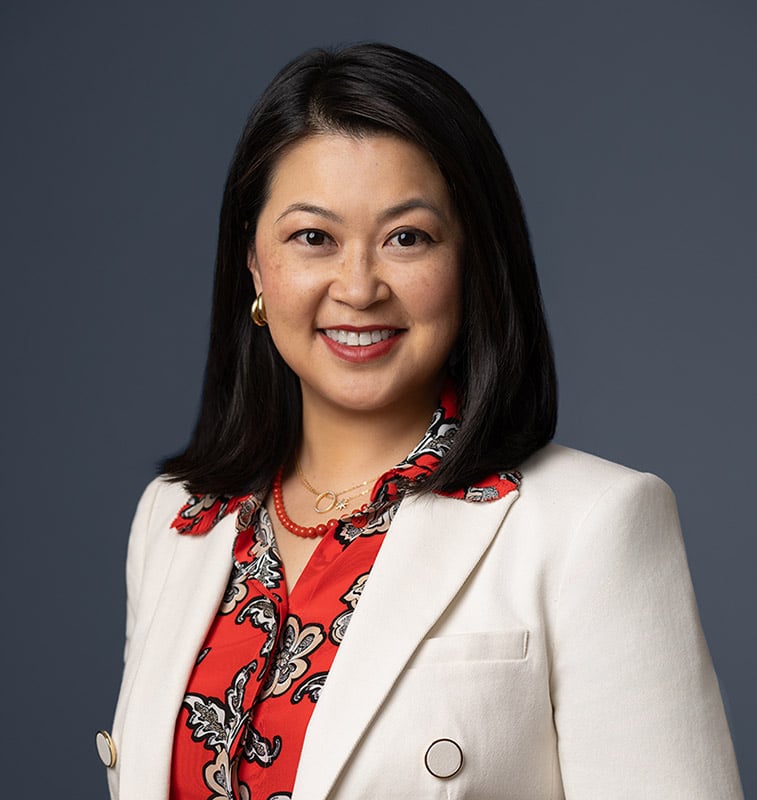H-1B Overhaul—Navigating the $100,000 Fee and New Lottery Rules
In this episode of The Inside Track, hosts Grace Shie and Morgan Bailey from Mayer Brown’s Global Mobility Practice discuss recently announced changes affecting the H-1B visa program. The conversation centers on the government’s introduction of a $100,000 fee for certain H-1B petitions, as well as proposed regulatory changes to H-1Bs subject to the annual quota. Their message: The H-1B program is undergoing significant transformation. We’ll help you confidently navigate change, minimize risk, and achieve your business goals as the H-1B landscape evolves.
Grace Shie: Welcome to the Inside Track, our podcast series covering the immigration challenges encountered by businesses and employers today. My name is Grace Shie and I lead Mayer Brown's Global Mobility Practice. I'm joined today by my partner, Morgan Bailey here in Washington, D.C. So today we're going to talk about the big news, really the biggest immigration news right now, which relates to the H-1B program.
So this visa program has been the subject of several recent announcements. Morgan, let's start with the President's Proclamation that was signed on September 19th. What's the headline for everyone?
Morgan Bailey: Well, the proclamation imposes a significant fee, specifically $100,000 for certain H-1B workers.
Grace Shie: A $100,000 per H-1B. So after the White House announcement on the 19th, we received guidance from U.S. Citizenship and Immigration Services, from the U.S. State Department, and from U.S. Customs and Border Protection. And we look to that agency guidance for operational clarity right now. What do employers need to know today?
Morgan Bailey: You know, Grace, it's really fascinating because this fee of $100,000 significantly inflates the cost of sponsoring someone for an H-1B. But the very first clarification, which I guess is a bit of relief and that multiple agencies have confirmed, is that it's a one-time fee.
Grace Shie: That's right, one time. That was a very important confirmation. So who actually has to deal with this fee right now?
Morgan Bailey: Well, it affects H-1B petitions. So that's the work category for individuals who typically qualify because they're offered a job that requires at least a bachelor's degree or its equivalent in a specific field, and the individual has that required degree.
Grace Shie: And when does this fee requirement go into effect?
Morgan Bailey: The agencies USCIS and the Department of State and CBP, they were pretty clear on this part. It's prospective, not retroactive. But now there is some bad ambiguity. So the proclamation states the fee affects H-1B petitions filed on or after September 21st, 2025.
Grace Shie: So September 21st, that date is key. So what about individuals who are already here in the United States as of that date or whose paperwork was in before that deadline?
Morgan Bailey: That's a crucial point for them and for their employers. So if you're currently in H-1B status or if petition was already filed or even approved before that cutoff, then the proclamation doesn't apply.
Grace Shie: And the agency guidance that we received also says that H-1B visa holders may travel to the same extent as they ordinarily would.
Morgan Bailey: That's right, but they may expect some hiccups at the border. So minor delays are possible, you know, just because there may be some confusion on the ground among officers initially. So it's important to treat any interaction with the border officer like a job interview, know, planning in advance, having your documentation ready, and being able to clearly and concisely respond to questions.
Grace Shie: The airport interactions will continue to be very important. So we have clarity on the date, not only the implementation date, but the fact that it relates to prospective filings as of that date, as well as who can travel after that date. But in spite of the guidance, you and I both know that there are some, there remain some unanswered questions about the proclamation.
Morgan Bailey: That's right, so one of the things that hasn't been addressed yet is waivers. So in the proclamation, the government mentioned that waivers could be possible for individuals as well as for certain companies or even for whole industries, but no details on how to request one. So we don't have guidance on the criteria or the process or timelines yet.
Grace Shie: And understanding the criteria for waivers will be important for employers who will be seeking waivers because of the inability to pay the $100,000 fee. So what about just paying the fee itself? If a company is willing and able to pay that fee right now for an H-1B, how do they go about it?
Morgan Bailey: So the government's still putting that into place. So at this time, employers can't pay the fee yet.
Grace Shie: And of course, one of the things we're hearing with the introduction of this type of fee and at this level, expect legal challenges, don't we?
Morgan Bailey: That's right, some may pursue litigation, so we'll be tracking this issue very carefully.
Grace Shie: So putting aside the new H-1B fee, the other headline that we're seeing is on H-1B rulemaking. We're aware of a couple of rules, so let's take them one by one. What's the first proposal on the table?
Morgan Bailey: So first, Department of Homeland Security, so DHS, just revealed its plan to make some changes to the lottery itself. So to prioritize what they call high skilled, high paid workers over those at a low wage.
Grace Shie: So what do we know about the proposed changes?
Morgan Bailey: So basically there will be an H-1B system favoring higher skilled, higher paid workers, but still keeping the door open for others. So the government wants to maintain opportunities at all wage levels, but perhaps the scales towards those top earners.
Grace Shie: So let's break down the mechanics. The proposed rule is centered around wage levels, of which there are four. And we tend to think of level one as being for entry level for the occupation, whereas level four relates to the most experienced and the highest paid. How does that, the new rule, translate into selection chances for individuals? Is it that higher level wages equals better chance at the H-1B?
Morgan Bailey: Yeah, that's right, pretty much. So it is weighed quite heavily. So let's say that if there's a random lottery selection, it's not just one person, one ticket anymore. Instead, each beneficiary gets a certain number of entries based upon their wage level offer. So again, with the wage level four, the highest. So that wage level four, they would get entered four times.
With a wage level three, they'd get entered three times, level two, twice, and level one, they would just get that standard one entry.
Grace Shie: So this does shift the odds moving away from a random selection where everyone has, say, using your analogy, one ticket to a weighted selection where if you have a wage level four, you get four tickets, four entries into the lottery.
What about situations where multiple different companies, multiple different potential employers file for the same beneficiary?
Morgan Bailey: If someone has multiple registrations filed for them, they don't get the benefit of the highest offer. Instead, they automatically are assigned the lowest wage offered across all those registrations. So that's a change. That's a notable change under the proposed rule.
Morgan Bailey: That's right. And so it actually hurts your chances.
Grace Shie: And how does this proposed rule apply to different locations? Because we all know that jobs have different wages based on location.
Morgan Bailey: So it's the same principle. So if the job spans multiple locations with different corresponding wages, the employer must use the lowest of those wages for the registration. Again, no cherry picking the highest wage there. Then on another front, we're hearing that the Department of Labor is planning rulemaking to raise the prevailing wage levels.
Grace Shie: So that's the second rule.
Morgan Bailey: That's right. So the stated goal is to try and quote, upscale the program.
Grace Shie: So why is the change, the proposed rulemaking under the Department of Labor, why is that change happening? Is there data that's being reviewed or that underpins the program and proposed changes?
Morgan Bailey: That's right. So if you look at fiscal years 2019 through 2024, the petitions for beneficiaries at wage levels three and four, so those highest wage levels, they were actually the least represented groups selected. So it wasn't achieving that goal of prioritizing the highest wage earners or potentially the highest skills according to the administration.
Grace Shie: So under this new proposed system, recognizing its early days yet, looking to be assessing the DOL Department of Labor proposed rule, under the new system, what kind of shift are we expecting with respect to the H-1B?
Morgan Bailey: Well, the government anticipates that the chances for a wage level one position will actually decrease by about 48%. So nearly cutting it in half.
Grace Shie: Chances for being awarded an H-1B.
Morgan Bailey: So would be decreased, and chances of being selected in the lottery for an H-1B would decrease by about 48%. And then on the flip side, the chance for a level four petition, that's projected to increase in terms of those chances of being selected by over 100%. So more than double.
Grace Shie: Wow. Yeah, because that's level four, four tickets, four chances. Yeah. The overall signal is pretty clear. The H-1B program under the proposed rule will focus much more on high earners.
Morgan Bailey: And we also within this mix have the $100,000 fee that will be interwoven into the H-1B program as well.
Grace Shie: Well, thank you for joining us. We hope this discussion has provided clarity, new information on the many changes we are seeing for the H-1B visa category. And that wraps up this episode of the Inside Track. To our listeners and viewers, thank you for joining us.
Subscribe
Listen to more episodes of The Inside Track.
The Inside Track is also available on the following podcast services for your subscription convenience.
Apple Podcasts Spotify YouTube
作者
相关内容
相关服务及行业



